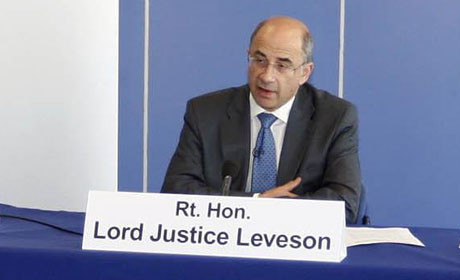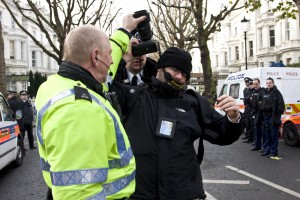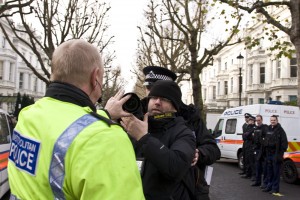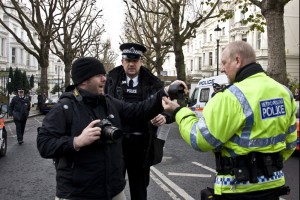Press photographers came together today to explore society’s suspicions of cameras and debate how to change these attitudes in support of a free press for the future, at the House of Commons for the ‘Who’s afraid of photographers’ seminar’.
Opening the seminar, MP Don Foster said photographers need to take “collective action” in ensuring police officers are correctly trained.
There are two key areas that we have to look at, existing legislation and the way legislation is interpreted and used by various forces of law and order. One great piece of news is that the coalition government, through Nick Clegg, has suspended Section 44 of the Terrorism Act. But please don’t say we’ve won because I used the word suspended. What we need to make absolutely certain is that it is actually repealed and removed, not just suspended. I think that’s really important.
You need to talk about the ways in which you can engage with those law enforcement agencies, in particular the police, to help work through with them what is legitimate, and what is not legitimate. That means you have to engage with police in their training procedures with new recruits. So far there has not been a great deal of success, but today I think this is something you should take collective action towards to ensure there is proper training that goes on.
Professor Chris Frost, head of journalism at Liverpool John Moores University, who outlined the ethical guidelines impacting on journalists added that he felt there was increasing concern on the part of the public over their privacy in public places.
People seem to be much more concerned about where their image is going to be placed, they are much more aware, possibly because there are more cameras around now.
He added that this is also fuelled by increased fears of terrorism, peadophilia, identity theft and state interference.
David Hoffman, a social issues photographer, talked the seminar audience through the relationship between photographers and police at demonstrations over the past decades, from the poll tax riots to the G20 clashes, during which he claimed to have lost four teeth. But in recent months there has been “a patchy and fragile improvement”, he said.
I am now finding the police more cooperative. I hope my experience is being reflected elsewhere. I am confident…we have an opportunity to build on the progress of the last 18 months.
We’re at a crossroads, this government has made promises and it’s that baton, not the one hanging from the PC’s belt, that we need to take up now.
So why has there been such a difficult relationship between police and journalists/photographers? John Toner, NUJ Freelance Organiser proposed the following theories, summarised below:
Some police think the press are out there just to take photographs of them behaving badly
Some are afraid of having their photo in the newspaper as could become target
Some believe they’re moral guardians
Some believe there is a law in this country which protects privacy. Even if that were the case, that’s a civil matter.
Looking to the future, and echoing the earlier comments of Don Foster, the seminar participants called for greater training of police, such as through web videos/units and training alongside photographers, as well as penalties for the misuse of legislation rather than the re-distribution of guidelines.
In support of practical training for police, Jules Mattsson, who claimed to have had his camera confiscated by police and been restricted from photographing two cadet parades, said time should not be an excuse.
If there’s not enough training time to train the police who uphold the law, then I think that’s a much wider problem than this.
I think publicity and education is important, also for new photographers, student photographers. We need to also expand our reach to educate people in our rights.



